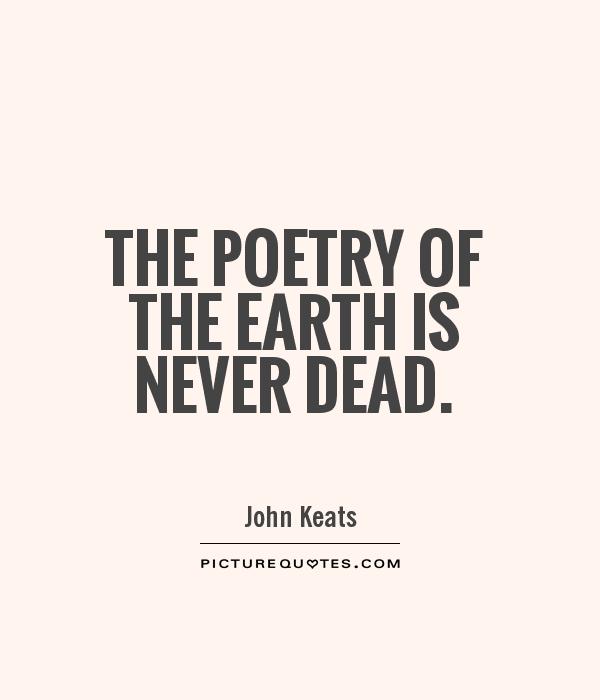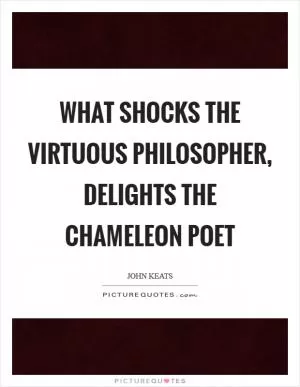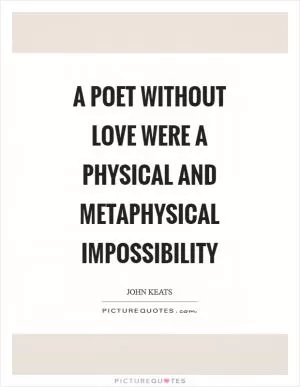The poetry of the earth is never dead

The poetry of the earth is never dead
John Keats, one of the most celebrated poets of the Romantic era, once famously wrote, "The poetry of the earth is never dead." This profound statement encapsulates Keats' belief in the enduring beauty and inspiration that nature provides to poets and artists alike. In the context of Keats' words, it is evident that he viewed nature as a boundless source of creativity and wonder, a wellspring of poetic inspiration that never runs dry.For Keats, nature was not merely a backdrop or setting for his poetry, but rather a living, breathing entity that spoke to him in a language all its own. In his works, Keats often personified nature, imbuing it with human-like qualities and emotions. He saw the earth as a muse, a source of endless inspiration that fueled his imagination and creativity.
Keats' deep connection to nature is evident in many of his most famous poems, such as "Ode to a Nightingale" and "To Autumn." In these works, Keats celebrates the beauty and transience of the natural world, capturing the fleeting moments of joy and sorrow that define the human experience. Through his vivid imagery and lyrical language, Keats invites readers to see the world through his eyes, to marvel at the wonders of nature and contemplate the mysteries of existence.












 Friendship Quotes
Friendship Quotes Love Quotes
Love Quotes Life Quotes
Life Quotes Funny Quotes
Funny Quotes Motivational Quotes
Motivational Quotes Inspirational Quotes
Inspirational Quotes